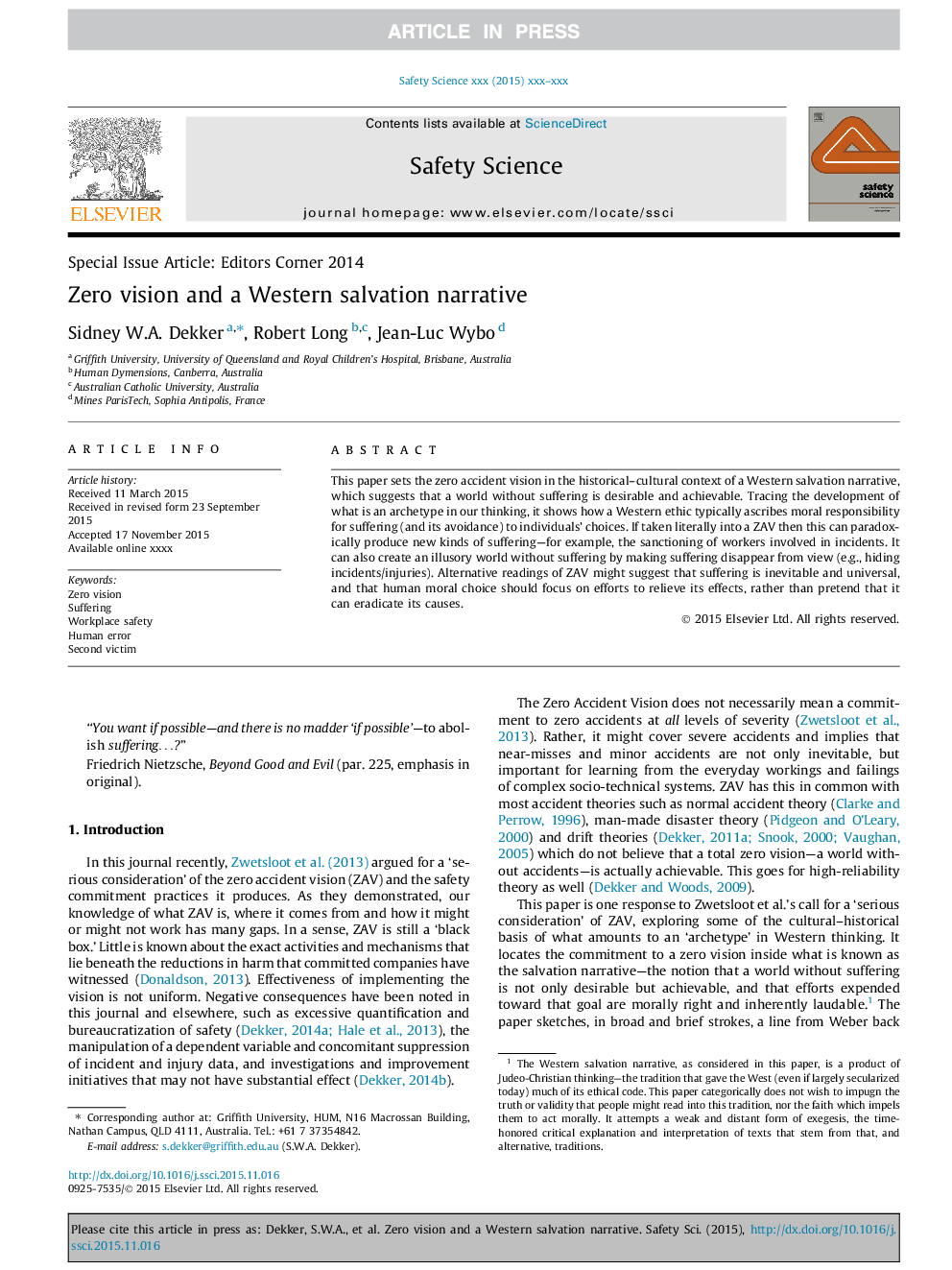| Article ID | Journal | Published Year | Pages | File Type |
|---|---|---|---|---|
| 6975298 | Safety Science | 2016 | 5 Pages |
Abstract
This paper sets the zero accident vision in the historical-cultural context of a Western salvation narrative, which suggests that a world without suffering is desirable and achievable. Tracing the development of what is an archetype in our thinking, it shows how a Western ethic typically ascribes moral responsibility for suffering (and its avoidance) to individuals' choices. If taken literally into a ZAV then this can paradoxically produce new kinds of suffering-for example, the sanctioning of workers involved in incidents. It can also create an illusory world without suffering by making suffering disappear from view (e.g., hiding incidents/injuries). Alternative readings of ZAV might suggest that suffering is inevitable and universal, and that human moral choice should focus on efforts to relieve its effects, rather than pretend that it can eradicate its causes.
Related Topics
Physical Sciences and Engineering
Chemical Engineering
Chemical Health and Safety
Authors
Sidney W.A. Dekker, Robert Long, Jean-Luc Wybo,
